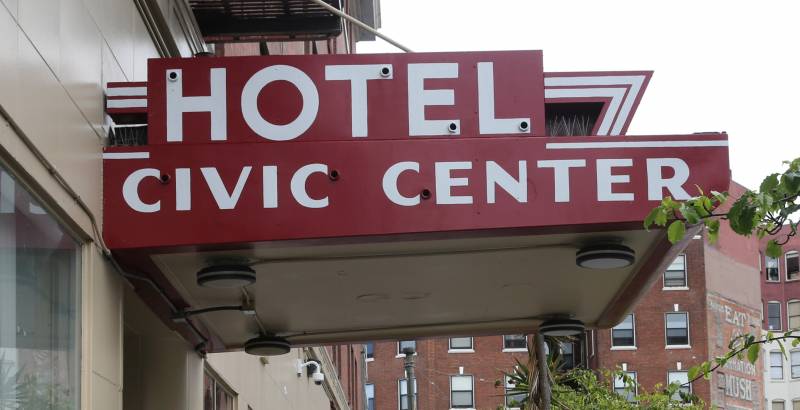Last Thursday, we spoke with San Francisco Chronicle reporters about their yearlong investigation into the city-funded single-room-occupancy buildings that are supposed to provide supportive housing for the homeless. In this show, we’ll get an inside look from staff that run SROs and the nonprofit operators that oversee them. Some operators say the city hasn’t given them adequate resources and funding to serve their tenants, who often struggle with drug and behavioral issues. Meanwhile, staff say they are underpaid and under-supported in jobs that often involve dealing with violence and verbal abuse from residents. Still, there is evidence that SROs are a proven model to move people off the streets and create community among residents and staff. We’ll talk about what it’s like to run an SRO and what supportive housing projects need to succeed.
What It Takes to Make SRO Hotels Run Well
53:00

(Photo By Michael Macor/The San Francisco Chronicle via Getty Images)
Guests:
Lauren Hall, executive director, Delivering Innovation in Supportive Housing (DISH)
Irmatine Bolds, front desk clerk, Garland Hotel — a residential hotel operated by the Tenderloin Housing Clinic
Eva Donjacour, clinical case manager, HomeRise
Dr. Kelly Ray Knight, director of qualitative research, UCSF Benioff Homelessness and Housing Initiative; professor and vice-chair of the Department of Humanities and Social Sciences, UCSF
Randy Shaw, director, San Francisco's Tenderloin Housing Clinic; author, "Generation Priced out: Who Gets to Live in the New Urban America"
Sponsored